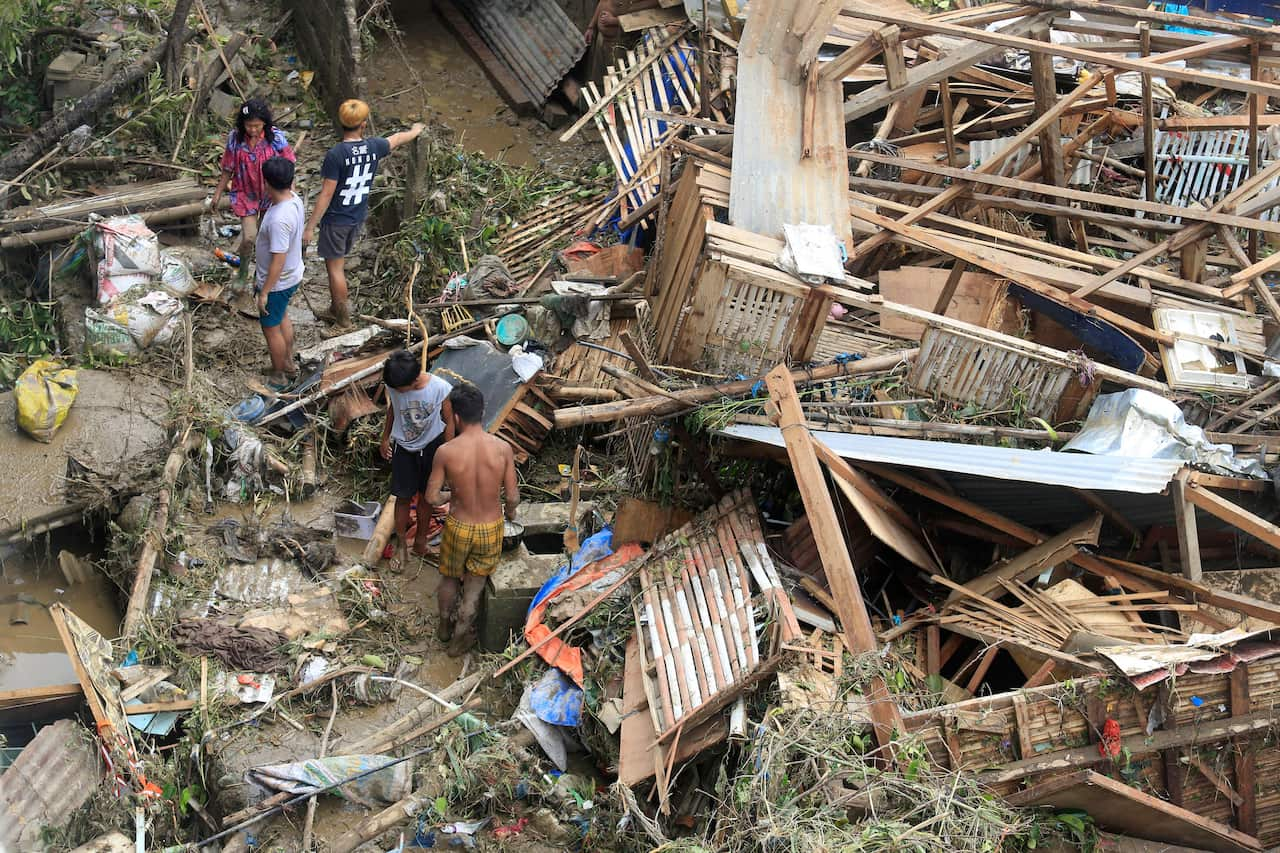The death toll from the strongest typhoon to hit the Philippines this year has passed 200, as desperate survivors pleaded for urgent supplies of drinking water and food.
The Philippine Red Cross reported "complete carnage" in coastal areas after Typhoon Rai left homes, hospitals and schools "ripped to shreds".
The storm tore off roofs, uprooted trees, toppled concrete power poles, smashed wooden houses to pieces, wiped out crops and flooded villages - sparking comparisons with Super Typhoon Haiyan in 2013.
At least 208 people were killed and 52 were missing in the latest disaster to hit the archipelago, with hundreds more injured after the storm ravaged southern and central regions, the national police said. There has also been widespread destruction on Siargao, Dinagat and Mindanao islands, which bore the brunt of the storm when it slammed into the country with wind speeds reaching 195 kilometres per hour.
There has also been widespread destruction on Siargao, Dinagat and Mindanao islands, which bore the brunt of the storm when it slammed into the country with wind speeds reaching 195 kilometres per hour.

In this photo taken on December 17, 2021, residents stand next to a destroyed market building in General Luna town, Siargao island, Surigao del norte province. Source: AFP via Getty Images
At least 10 people died on the Dinagat Islands, provincial information officer Jeffrey Crisostomo told AFP on Sunday.
S.O.S. was painted on a road in the popular tourist town of General Luna on Siargao island, where surfers and holidaymakers had flocked ahead of Christmas, as people struggled to find water and food.
"There's no water anymore, there's a water shortage, on day one there was already looting in our neighbourhood," Siargao resort owner Marja O'Donnell told CNN Philippines.  The storm has dealt a savage blow to the country's tourism sector, which was already struggling to recover after COVID-19 restrictions led to a drastic cut in visitor numbers.
The storm has dealt a savage blow to the country's tourism sector, which was already struggling to recover after COVID-19 restrictions led to a drastic cut in visitor numbers.

Local tourists take shelter under uprooted trees outside the airport in Del Carmen town, Siargao Island. Source: AFP via Getty Images
Swathes of the affected areas have no communications, hampering efforts by disaster agencies to assess the full extent of the storm's damage.
Electricity also has been knocked out, affecting water-refilling stations and ATMs.
Some victims expressed frustration at the government's response to the disaster.
"No one showed up - I don't know where the politicians and [election] candidates are," said a visibly angry Levi Lisondra, an elderly resident in Surigao City, on the northern tip of Mindanao.
"We paid big taxes when we were working and now they can't help us." President Rodrigo Duterte visited some of the hardest-hit areas on Saturday and has pledged to release two billion pesos (A$56 million) to assist recovery efforts.
President Rodrigo Duterte visited some of the hardest-hit areas on Saturday and has pledged to release two billion pesos (A$56 million) to assist recovery efforts.

Residents salvage belongings from their destroyed houses at Talisay in Cebu province on 17 December, 2021. Source: Getty Images
Rai hit the Philippines late in the typhoon season - most cyclones typically develop between July and October.
Scientists have long warned that typhoons are becoming more powerful and strengthening more rapidly as the world becomes warmer because of human-driven climate change.
The Philippines - ranked among the globe's most vulnerable nations to the impacts of climate change - is hit by an average of 20 storms and typhoons every year, which typically wipe out harvests, homes and infrastructure in already impoverished areas.

